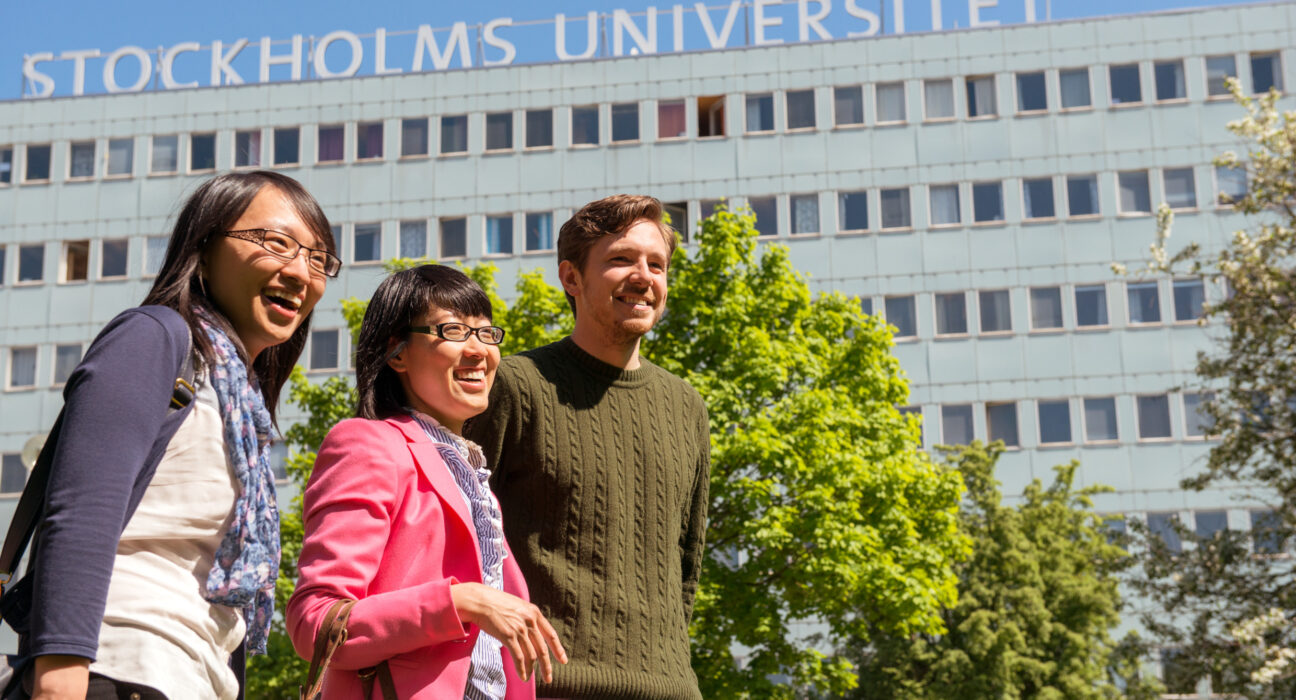“Going to college has always been a significant time of transition developmentally with adulthood, but you add to it everything that comes along with that transition and then you put onto it a youth mental health crisis, it’s just compounded in a very different way,” says Jessica Gomez, a clinical psychologist and executive director of the Momentous Institute in the United States. For Stockholm’s international students, the transition to a new country while successfully balancing academics can be a major challenge. Support from on-campus resources as well as the advantages that a private tutor can bring, however, can ease the transition while paving the way for academic success.
Common challenges facing international students
Academic stress, according to the Bay Atlantic University, is defined as “psychological distress caused by factors pertaining to one’s academic performance.” Specific stressors vary from student to student, though all have in common the fear of failure. Academic stress can plague students who may worry they will fail an upcoming exam, or who fear missing class due to late night exam preparation, to highlight a couple of examples. The toll that academic stress can take is significant. Physical symptoms may include muscle pains, headaches, nausea, or stomach aches, while the psychological effects of stress can worsen the symptoms for those who already experience an anxiety disorder or depression. High levels of stress can also disrupt a student’s sleep schedule or the quality of sleep, notes the Bay Atlantic University post, all of which can result in poor academic performance.
Academic stress and the worries that come along with it can be exacerbated when taking into consideration that new international students in Stockholm are adjusting to college life in Sweden as well as the pace of Swedish universities. “In Sweden, the academic environment is characterized by an emphasis on independent learning, critical thinking, and free expression of opinions,” highlights a post from the Dalarna University student blog. “Swedish universities use a variety of innovative teaching methods, including peer-to-peer learning, and problem-based learning. In this approach, students learn from each other by sharing their knowledge, skills, and experiences.” This transition can be particularly difficult for those who are used to differing learning styles and approaches, and can translate to academic difficulty on top of what is already a challenging transition for international students.
One DUB article highlights Fay (26), a Dutch student who is pursuing her second Master’s degree in Sweden. While Fay notes that she’s much happier in Sweden, going on to reflect on what classes are like. “In Sweden, there are fewer things to read and considerably fewer assignments. Instead, we discuss the materials a lot more. They are more focused on processing the materials rather than just stamping them,” she explains. This can be great news for many students, however, others may experience difficulty with the learning style if they are not accustomed to it.
Tutors provide academic help and hope
Resources on campus are a great way to ease the transition into the college lifestyle in Sweden as an international student. Stockholm University highlights an event hosted by the Student Health Services in Stockholm and the International Office in late 2022, which served as an information session for new international students. The session worked to provide students with valuable insight on the psychological challenges faced in such a unique situation, as well as the possibilities available in order to provide support to new international students. Stockholm University also offers an Academic Writing Service, which provides English-language support for writing and study skills (in addition to talks, seminars, and individual guidance). Different kinds of study support is also available to students with long-term disabilities, and is a resource that aims to give all students the chance to study on equal terms.
A private tutor can be particularly beneficial when aiming to target specific learning difficulties, providing a tailored and effective approach that can translate into academic success. For example, students that are taking courses in the English language may find themselves experiencing difficulty keeping up. One study from the KTH Royal Institute of Technology and Chalmers University of Technology found that when 2,000 Swedish students were divided into English-language and Swedish-language versions of an introductory course in programming, those taught in English obtained “much worse results,” and more dropped out of the course prematurely. For international students who plan to take courses in English and who experience a bit of difficulty with the language, a tutor can help review class material while working on valuable language skills — like listening.
Finding a fellow student as a tutor is a great way to get to know others while at university, however, online tutoring options present more flexibility in addition to a tailored approach. To find the right person for the job, it’s imperative to be wary of scams and those who may not be who they portray themselves online. In addition to looking for the right qualifications and relevant experience, an interview is crucial to the process of hiring the right individual, and will help determine whether a good working relationship can be established. This is the perfect time to ask questions and voice any concerns while discussing academic goals, which will give you a feeling as to whether they’re right for the job or you need to look for a better fit.
The transition to university life can be a major undertaking for any international student. For those in Stockholm, finding support can be achieved via campus resources (such as Stockholm University’s informational session), while online tutors can provide tailored academic help that can ease the transition into Sweden’s higher education system.












